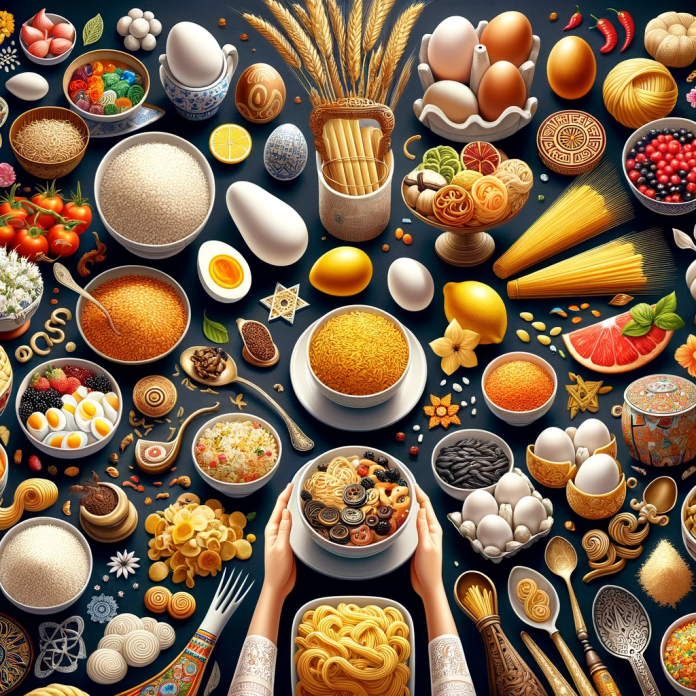The role of food in funerals and memorials is a tradition steeped in history and culture. It is a universal practice that transcends geographical boundaries and cultural differences. This article delves into the significance of food in mourning rituals, exploring its role in various cultures around the world.
The Symbolism of Food in Mourning Rituals
Food, in the context of funerals and memorials, is more than just sustenance. It carries symbolic meanings, often representing life, death, and the continuity of existence. In many cultures, specific foods are chosen for their symbolic significance, often tied to religious beliefs or ancient customs.
For example, in Chinese culture, offerings of food are made to the deceased as part of the funeral rites. These offerings are believed to provide sustenance for the departed in the afterlife. Similarly, in Jewish tradition, mourners are often served a meal of consolation after the funeral, which typically includes foods like eggs and lentils, symbolizing the cycle of life.
Food as a Means of Comfort and Connection
Food also serves as a means of comfort and connection during the grieving process. Sharing a meal allows mourners to come together, offering support and companionship during a difficult time. This communal aspect of food is a common thread in funeral traditions across various cultures.
In the United States, for instance, it is common for friends and family to bring food to the bereaved family's home. This act of kindness not only provides practical help but also symbolizes the community's support and solidarity. In the African country of Ghana, funerals are often marked by large feasts, where mourners come together to eat, drink, and celebrate the life of the deceased.
Food in Funerals and Memorials: A Cross-Cultural Perspective
Asian Cultures
In many Asian cultures, food plays a central role in funeral and memorial rituals. In Japan, for example, the Buddhist tradition of "koden" involves giving money to the bereaved family, which is often used to prepare food for the funeral service. In Korea, a ritual called "jesa" involves preparing a table of food offerings for the deceased.
In India, a country with diverse religious and cultural practices, food also plays a significant role in mourning rituals. In Hindu funerals, a meal is often prepared and served after the cremation, symbolizing the release of the soul from the body. In Sikh and Muslim funerals, community members often come together to prepare and share meals, providing comfort and support to the bereaved family.
European Cultures
European cultures also have unique traditions involving food in funerals and memorials. In Italy, for example, it is customary to serve a meal after the funeral service, often including foods like pasta and meat, which are considered comforting. In Greece, a dish called "koliva," made of boiled wheat and sugar, is often served at memorials, symbolizing the cycle of death and rebirth.
In Ireland, the tradition of the "wake" involves a gathering of friends and family to eat, drink, and remember the deceased. Traditional foods served at wakes include Irish soda bread, cheese, and cold meats. In the United Kingdom, the "funeral tea" is a common practice, where mourners gather after the funeral service to share a light meal and pay their respects to the deceased.
African and Middle Eastern Cultures
In African and Middle Eastern cultures, food is an integral part of funeral and memorial rituals. In Egypt, a dish called "fatta" is often served at funerals, symbolizing abundance and renewal. In South Africa, the tradition of "ukubuyisa," involves preparing a meal for the deceased's spirit, believed to be returning home.
In many Middle Eastern cultures, meals are often shared after the funeral service, providing a space for mourners to come together and support each other. In Jewish tradition, the "shiva" is a seven-day mourning period during which friends and family bring food to the bereaved, symbolizing their support and solidarity.
Conclusion
The role of food in funerals and memorials is a rich and varied tradition that reflects the diversity of human cultures. Whether it serves as a symbol of life and death, a means of comfort and connection, or a way to honor and remember the deceased, food is a universal language that speaks to our shared human experience of loss and mourning.
Understanding these traditions can offer valuable insights into the ways in which different cultures approach death and grieving, and can help us to appreciate the profound role that food plays in these important rites of passage.


-banner.png)





